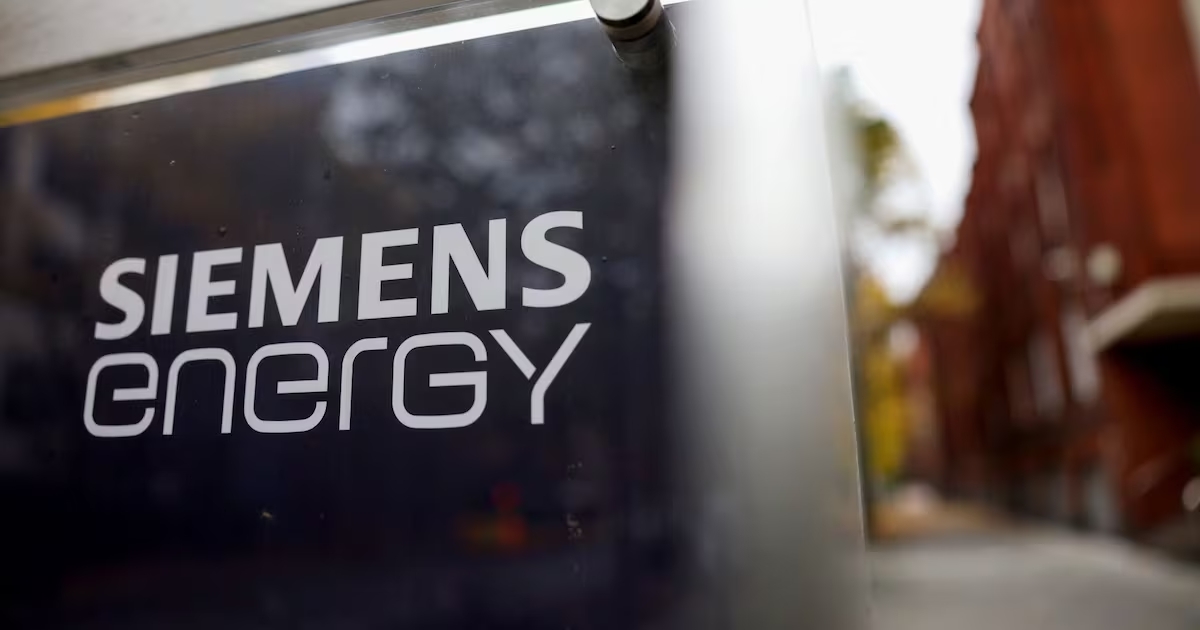In the quiet hum of a trading floor in Frankfurt, a group of analysts watched the Siemens Energy stock ticker with curiosity and apprehension. The share price had always been a complex narrative, weaving through global market shifts, technological advancements, and industry-specific challenges. One analyst leaned over to another and whispered, “It’s like watching a giant steamship adjust to the tides, one strategic turn at a time.” This image perfectly captures the fluctuating journey of Siemens Energy share price—an intricate blend of historical legacy and modern-day market challenges.
A Brief History of Siemens Energy
Siemens Energy AG, born from the 2020 spin-off of Siemens AG, inherited a significant portion of its parent company’s industrial might and market credibility. As a global leader in the energy sector, Siemens Energy focuses on energy transmission, renewables, gas, and power generation technology. However, as with many industrial giants, the company’s share price has reflected not just its technological prowess but also global economic conditions, supply chain crises, and shifting energy policies.
The company debuted on the Frankfurt Stock Exchange in September 2020 at a share price of €22.01, with an initial valuation that promised a bright future. By the end of its first trading day, shares had settled at around €21, giving it a market capitalization of roughly €16 billion. However, the journey since then has been anything but straightforward.
Performance Trends and Key Fluctuations
Since its debut, Siemens Energy’s stock has navigated both peaks and troughs, influenced by various internal and external factors. For instance, during the 2021 financial year, the stock saw significant volatility. Complex supply chain issues and soaring raw material prices tempered the initial optimism surrounding global economic recovery post-pandemic. According to a report by Reuters, the stock price hovered between €19 and €29 that year, reflecting investors’ uncertainty about the global economic climate and Siemens Energy’s ability to manage its vast portfolio amid growing competition.
The ongoing shift toward renewable energy also played a significant role. Siemens Energy’s stake in Siemens Gamesa Renewable Energy, a leading wind turbine manufacturer, proved both an asset and a challenge. When Siemens Gamesa reported losses due to high production costs and delayed projects, it impacted Siemens Energy’s financial outlook, dragging its stock price down. Data from Bloomberg shows that shares of Siemens Energy dropped by about 10% in early 2022 when Siemens Gamesa issued profit warnings due to supply chain disruptions and higher costs.
Global Market Influences: Energy Crisis and Policy Shifts
Macroeconomic factors have also shaped the stock’s trajectory. The energy crisis triggered by geopolitical tensions, especially the Ukraine conflict, has profoundly impacted energy stocks worldwide, including Siemens Energy. As European countries scrambled to reduce dependence on Russian natural gas and shift to alternative energy sources, companies like Siemens Energy were at the center of the debate.
According to an analysis by Financial Times, the share price rose by 15% between March and June 2022 as investors anticipated higher demand for energy infrastructure that could facilitate the shift from fossil fuels to renewable sources. However, the complexity of balancing gas and power projects while pushing for sustainable initiatives created a tug-of-war effect on the stock, leading to further price fluctuations. By December 2022, shares were trading at approximately €16, reflecting investor concerns over rising project costs and the long lead times required for renewable infrastructure deployment.
Earnings Reports and Financial Health
The financial performance of Siemens Energy has been a major determinant of its stock price. In its fiscal year 2023 Q2 earnings report, the company posted revenues of €8.6 billion, a 9% increase compared to the previous year. However, despite the revenue growth, Siemens Energy reported a net loss of €189 million due to ongoing issues within its renewables division and increased operational expenses. Analysts from Goldman Sachs noted that while the company’s traditional energy transmission and gas segments showed stable growth, the renewables division remained a concern that weighed on investor sentiment.
One significant bright spot for Siemens Energy has been its focus on hydrogen technology. The company announced 2023 a joint venture with a leading European utility firm to develop green hydrogen solutions, which many see as the future backbone of the renewable energy market. According to Statista, the global hydrogen market is expected to grow from $130 billion in 2022 to over $300 billion by 2030. These developments have sparked periods of share price recovery, particularly when hydrogen projects receive government support or private investment.
Analyst Opinions and Future Outlook
The market consensus around Siemens Energy has remained cautiously optimistic, with analysts urging a wait-and-see approach. According to Morningstar, as of late 2023, the stock had a mixed rating of “Hold,” with a few “Buy” recommendations primarily focused on the long-term potential in renewable energy and hydrogen technology.
However, challenges persist. The company’s heavy reliance on the wind power market through Siemens Gamesa, with high production costs and stiff competition from firms like General Electric and Vestas Wind Systems, casts a shadow over its near-term profitability. Despite this, Siemens Energy’s strong position in energy transmission and emerging technologies like hydrogen puts it in a favorable position for long-term growth.
Conclusion: A Complex Yet Promising Path
The story of Siemens Energy share price is emblematic of the modern energy market—a blend of ambition, innovation, and external pressures. Its journey from its spin-off debut to its current standing is a testament to the challenges faced by large-scale energy companies trying to balance legacy operations with the demands of a rapidly evolving global market. While short-term headwinds remain, particularly in its renewables division, the long-term outlook is bolstered by a diversified portfolio that includes both traditional and future-forward energy solutions.
In a world increasingly prioritizing sustainable energy solutions, Siemens Energy’s ability to adapt and innovate will be critical. Much like those analysts on the Frankfurt trading floor, investors will continue to watch the ticker, waiting for the next move of this industrial steamship to navigate the uncertain waters of the global energy market.


